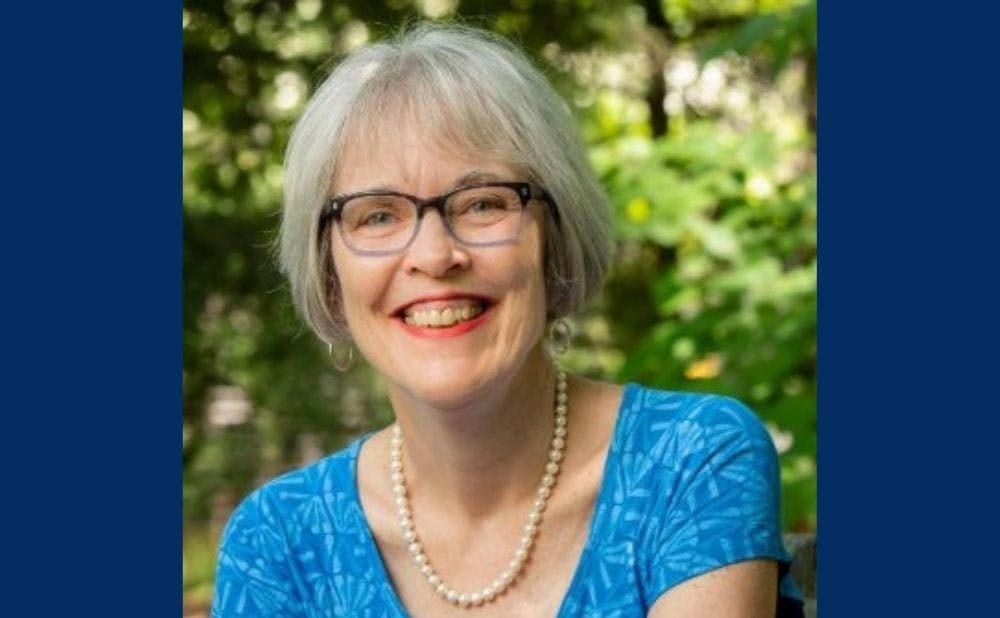Duke Law’s Carolyn McAllaster has had a profound influence on Duke’s legal clinics and law students as an advocate for health justice.
McAllaster, Colin W. Brown clinical professor emerita of law, was the founder of Duke Law’s Health Justice Clinic, which provides legal representation to low income clients who face barriers due to chronic medical conditions. She directed the HIV/AIDS Policy Clinic, focusing on improving health care policy for individuals with HIV/AIDS in North Carolina and the southern United States.
McAllaster, who retired June 30, was also transformational outside of the University, as a founder of the North Carolina Association of Women Attorneys and member of the North Carolina Bar Association.
Her law career began with 13 years of private practice where she worked on “everything from discrimination cases (sex, race and age), worker’s compensation cases, and criminal defense,” she wrote in an email. She was always interested in health justice, handling compensation cases for N.C. cotton mill workers who had contracted brown lung disease.
McAllaster’s brother was diagnosed with AIDS in 1985, which inspired her to volunteer to help people living with HIV and AIDS with wills, powers of attorney and living wills. Her brother died eight years later, but to this day she credits him as one of her strongest influences in pursuing a career in health justice.
“While he was alive, he shared his experiences living with HIV,” she wrote. “I also witnessed his own activism as he tried to live his life while also supporting his friends also living with HIV/AIDS.”
In 1988, McAllaster started teaching at the Law School, where she taught pre-trial and trial practice courses. She first ran the child advocacy clinic to place law students with attorneys in the community who were representing “abused and neglected” children.
While at the Law School, McAllaster created the AIDS Wills Project, a volunteer effort to help clients with HIV by “preparing powers of attorney and health care powers of attorney.” In 1996, she started the AIDS Legal Project—now the Health Justice Clinic—allowing law students to receive academic credit for handling legal issues on behalf of clients with HIV or AIDS.
The AIDS Legal Project eventually expanded to become the Health Justice Clinic, including clients with cancer and other chronic conditions. Allison Rice, clinical professor of law and director of the Health Justice Clinic, joined as the supervising attorney in 2002. The Health Justice Clinic specifically works with populations that face barriers to health care caused by “poverty, stigma, discrimination and lack of opportunity,” she wrote in an email.
“Our mission has always been to serve people who face legal issues because of their illness,” Rice wrote, “and particularly to serve those who have multiple challenges that impact their ability to access health care and other rights.”
The Health Justice Clinic is a teaching clinic, which allows law students to hone their legal skills while gaining an understanding of the challenges their clients face in the current healthcare system.
By working in the Health Justice Clinic, law students can see the effects of these national policy changes in the health care debate on their clients in North Carolina. Rice wrote that law students are often surprised by the results of this legislation.
Rice added that although McAllaster started the program solely for people diagnosed with HIV or AIDS, its reach has expanded since to include other diseases—notably cancer—and will continue expanding.
“As we expand into other areas in the future, we will always keep our focus on people who have barriers to health and whose well being is impacted by their health issues,” she wrote.
As Rice continues the clinic’s operations, McAllaster plans to remain involved with the Southern AIDS Coalition, serving on the board and policy committee. She also plans to continue working with the NC Aids Action Network, an advocacy group for people living with HIV in North Carolina.
Establishing the Health Justice Clinic will continue to be one of McAllaster’s greatest contributions to law and the University.
“Students in the clinic learn not only the skills they need to practice law, they also learn the value of empathy and respect for people who lead very different lives than do most Duke Law students,” McAllaster wrote. “They learn about what it means to have a chronic, stigmatizing illness and they see the resilience that many of our clients have in the fact of their illness and the judgment that society brings.”
Get The Chronicle straight to your inbox
Sign up for our weekly newsletter. Cancel at any time.

